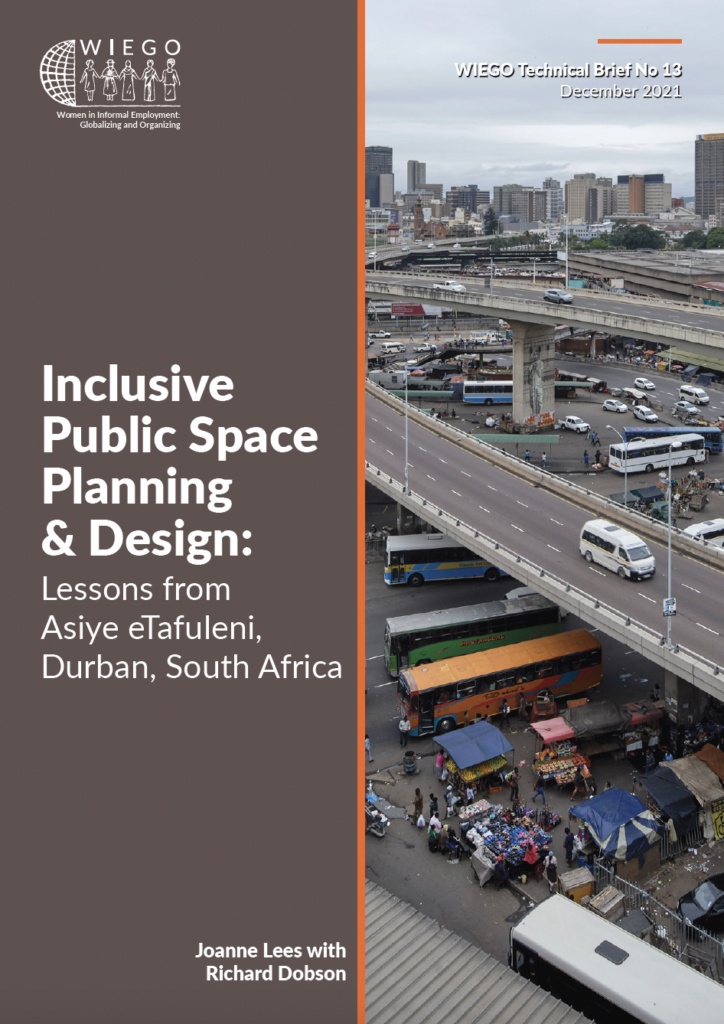Inclusive Public Space Planning & Design: Lessons from Asiye eTafuleni
In 2020, WIEGO commissioned Asiye eTafuleni to document the team’s decade long experience in co-designing public space with informal workers. Using case studies and a review of our experience, the document reflects on our work and suggests strategies, methods and tools for inclusive and appropriate planning and design. The resulting Technical Brief, published as a resource for urban practitioners and informal worker organisation leaders.
Key Points from the Technical Brief:
- Inclusive participatory processes are the best way to support informal traders and maximize their contribution to city economies.
- Co-design with, and appropriate provision of, infrastructure for informal traders enhances the functionality and aesthetics of public spaces, secures better urban management and improves city-making for all.
- Asiye eTafuleni, and its staff, have two decades of experience of co- designing public space with informal traders. Their work, described in this brief through case studies and a review of their experience and learning, suggests methods and tools for informal traders and their leaders, local government officials and other urban practitioners.
- Before intervening, urban practitioners need to conduct a thorough status quo analysis. Asiye eTafuleni has used critical observation, individual and focus group interviews and encouraged traders to do their own research.
- Asiye eTafuleni has identified different trading patterns and typologies with associated planning and design implications. This is offered as a tool for urban practitioners to apply. Informal trade is dynamic, making contextual responses key.
- Rather than providing a blueprint, the brief provides ideas and principles that could be applied elsewhere.


